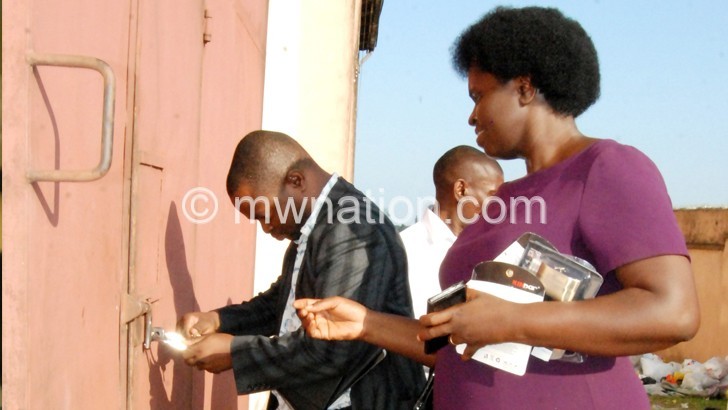Govt gets tough on thin plastics
Plastics manufacturers will no longer tamper with sizes of plastic bags they produce following government’s purchase of devices to authenticate compliance to recommended thickness.
Government and the plastic manufacturers have been at loggerheads over production of plastic bags since the ban of such bags with a thickness of less than 60 microns.
Hitherto, government relied on its officers’ expertise to determine the thickness of the bags which are produced locally, but that task has now been simplified following the acquisition of two micrometers.
A micrometer is a hand-held device incorporating a calibrated screw used to precisely measure thickness of blocks’ outer and inner diameters.

Sangwani Phiri, spokesperson for the Department of Environment and Climate Change in the Ministry of Natural Resources, Energy and Mining last week confirmed the purchase of the Mitutoyo Micrometer devices in an interview, saying they have already been put to use.
Phiri said the devices will remove every suspicion in some manufacturers’ minds who alleged that government was only bent at killing their businesses.
“With these devices, we will be measuring the plastics together and know their thickness right there, this will remove all their suspicions,” he said, adding that government spent about K1.2 million to procure the devices from South Africa.
To assess the thickness, the plastic bags will be put in between the two ends of the digital micrometer machine and upon pressing it will show the thickness.
In a related development, Phiri said the two Blantyre-based manufacturing companies—Aero Plastics and Rainbow Plastics—that were shut down on February 12 2016 have been re-opened after complying with the requirements. He also said Anchor Plastics and OG Plastics of Blantyre, who were given protection orders, have since paid the K1 million fine each and are proceeding with their operations.
Malawi banned production, importation, distribution and use of plastic bags in April 2013, but enforcement has been a problem after the manufacturers challenged the decision in court despite government giving them a breather to prepare for the prohibition.
There are about 20 plastic manufacturing companies in the country, and according to chairperson of the Plastic Manufacturers Association, Vijay Kumar, over 5 000 people have lost jobs since the ban was effected.
The plastic ban is a critical global environmental issue because thin plastic papers are difficult to dispose of and hazardous to health with environmentalists recommending use of paper bags, cloth bags and sisal bags as an alternative because they can be reused and are biodegradable. n





